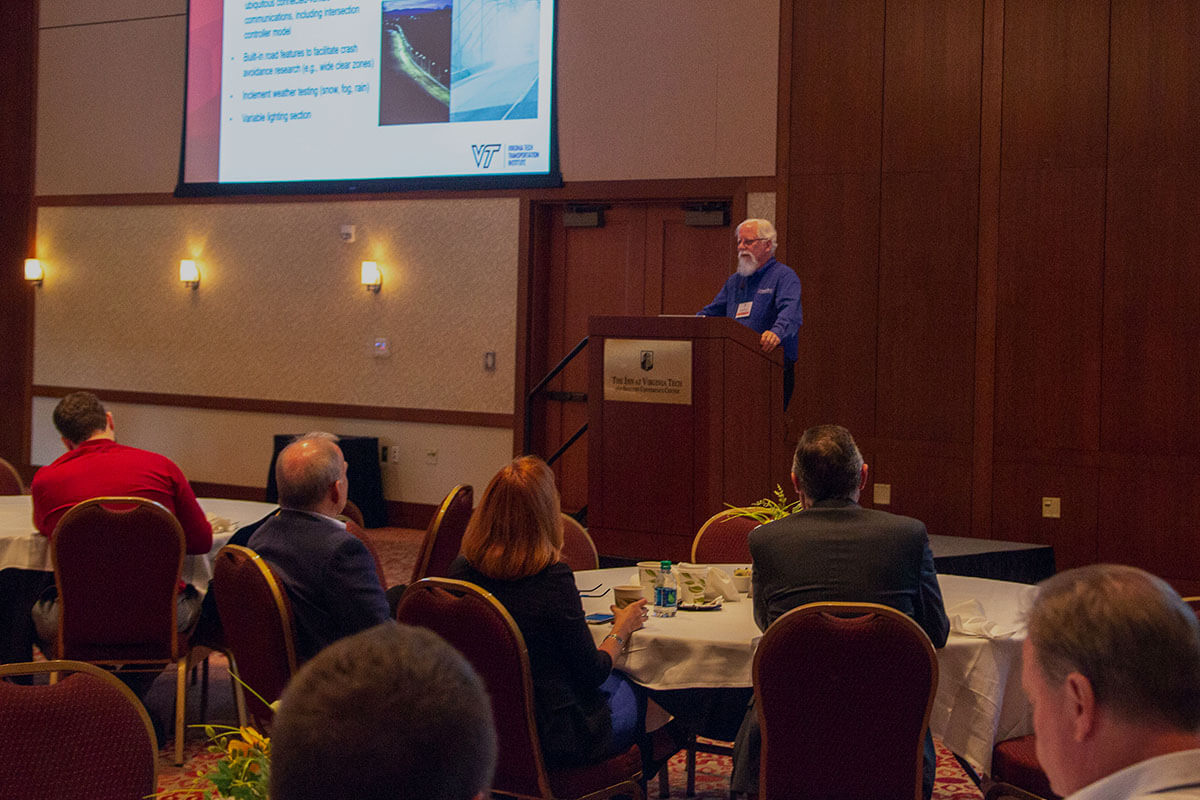
October 15, 2018
The National Surface Transportation Safety Center for Excellence at the Virginia Tech Transportation Institute (VTTI) recently hosted its Seventh International Symposium on Naturalistic Driving Research. Transportation researchers, practitioners, and other experts from around the world gathered in Blacksburg, Va. in August to share advancements being made in international driving safety.
“This year’s symposium brought together researchers, academics, industry representatives, and policy stakeholders to share and discuss the latest in naturalistic driving research. We were fortunate to hear from a dedicated panel to share the Canada Naturalistic Driving Study, as well as an opening address from Dr. Miguel Perez, Director of the Center for Data Reduction and Analysis Support at the VTTI, that took us on a trip down memory lane, reminding us how far naturalistic driving research has come over the past decade,” said Erin Mabry, senior research associate for VTTI’s Center for Truck and Bus Safety and conference organizer.
The symposium provided attendees with an overview of naturalistic driving research, a method designed to track driver behavior in real-time. Presenters discussed their findings on a variety of research topics including: distracted driving, automated and connected vehicles, teen drivers, data methodologies and application uses, the new Canada Naturalistic Driving Dataset, among others. Guests and presenters were also given many networking opportunities to discuss research in their respective countries and gained insight into the next generation of naturalistic driving studies.
Keynote speakers included Russell Neudorf, Deputy Minister of Transportation for the Government of the Northwest Territories, Canada, and Dr. Thomas Dingus, director of VTTI.
The symposium was followed by a workshop on marijuana-impaired driving research. Now that marijuana is legal in several states, there is an urgent need to better understand its effects on driving performance and safety, according to Ryan Smith, leader of VTTI’s Driving Research, Evaluation, and Analysis group and workshop facilitator.
“The marijuana legalization landscape is rapidly shifting, yet research has failed to keep up with the emerging public health challenges. This workshop was a call to action with national transportation leaders to address this research gap by designing and implementing the next generation of promising cannabis-impaired-driving research. Attendees discussed the first naturalistic driving study of marijuana impairment in Colorado, and the ability of this method to provide critically needed answers regarding the effects of marijuana on driving performance and traffic safety,” said Smith.
The next symposium will take place August 13-14, 2019 in Melbourne, Australia, with optional activities before and after the symposium.
Learn more about the symposium here. Presentations from the 2018 event can be found here.